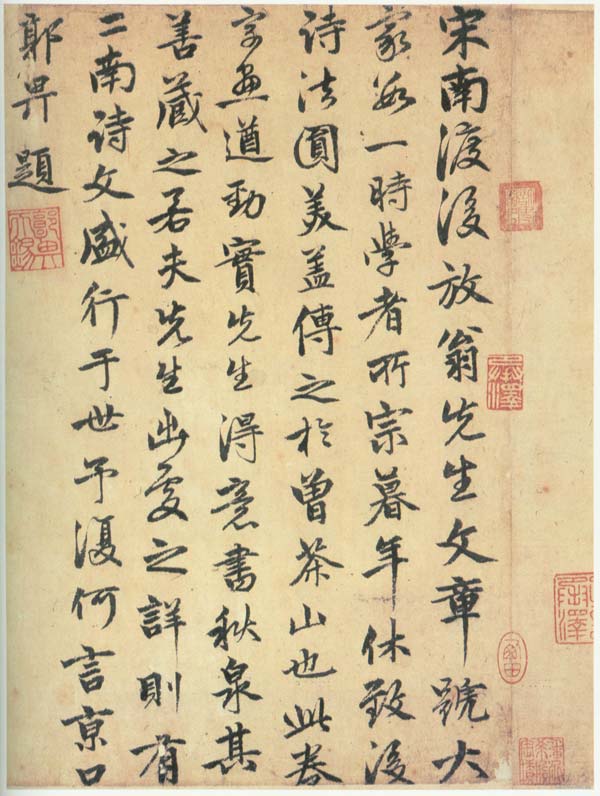Guo Jing (1280-1335), whose courtesy name was Tianxi and whose nicknames were Yunshan and Tuisi, was born in Mingshui (now part of Hebei Province). After the Jingkang Revolution, his ancestors lived in Jingkou (now Zhenjiang, Jiangsu Province). He inherited his family education, was good at debating, was proficient in Mongolian, was tall and tall, had a long beard, and was known as Guo Beard. At the age of 20, he was appointed as a Confucian scholar in Zhenjiang. He successively served as the mountain director of Poyang Academy on Raozhou Road and the inspector of Layuan, Qingtian County, Chuzhou. He was later transferred to the Confucianism professor at Pingjiang Road (today's Suzhou). Before he could take up the post, he was renamed as the official of the Prime Minister's Office of Jiangsu and Zhejiang Provinces.
Zhao Mengfu is a master of calligraphy and painting, and studied calligraphy. He once wrote "Songxuezhai Collection" for Mengfu. Meng Fu wrote a postscript and praised it. He imitated Mi Fu in painting, and learned his brushwork from Gao Kegong, and became good friends with Wuxi painter Ni Zan. When he paints after drinking, he becomes so excited that he becomes a god and is treasured by others. The landscape has the style of the Mi family, especially bamboo, wood and stone, which is full of natural interest. He is the author of Tuisi Collection, which was compiled posthumously by his son Guo Qilai, with a preface by Yu Xilu. There is also "Yunshan Diary", which records his one-year stay in Zhenjiang and his travels to Hangzhou. It contains many rural and state documents. Excerpts from the Qing Dynasty were published in "Kehang Diary". Among the works handed down from generation to generation are the volumes of "Youhuang Dead Wood" collected in the Kyoto National Museum, Japan.
Because Guo was given the courtesy name Tianxi, records from past dynasties often confused him with Guo Tianxi (also known as Youzhi, also known as Beishan), a connoisseur in the early Yuan Dynasty. The difference between the two is more than forty years.

Lu You's self-written poems and postscripts








